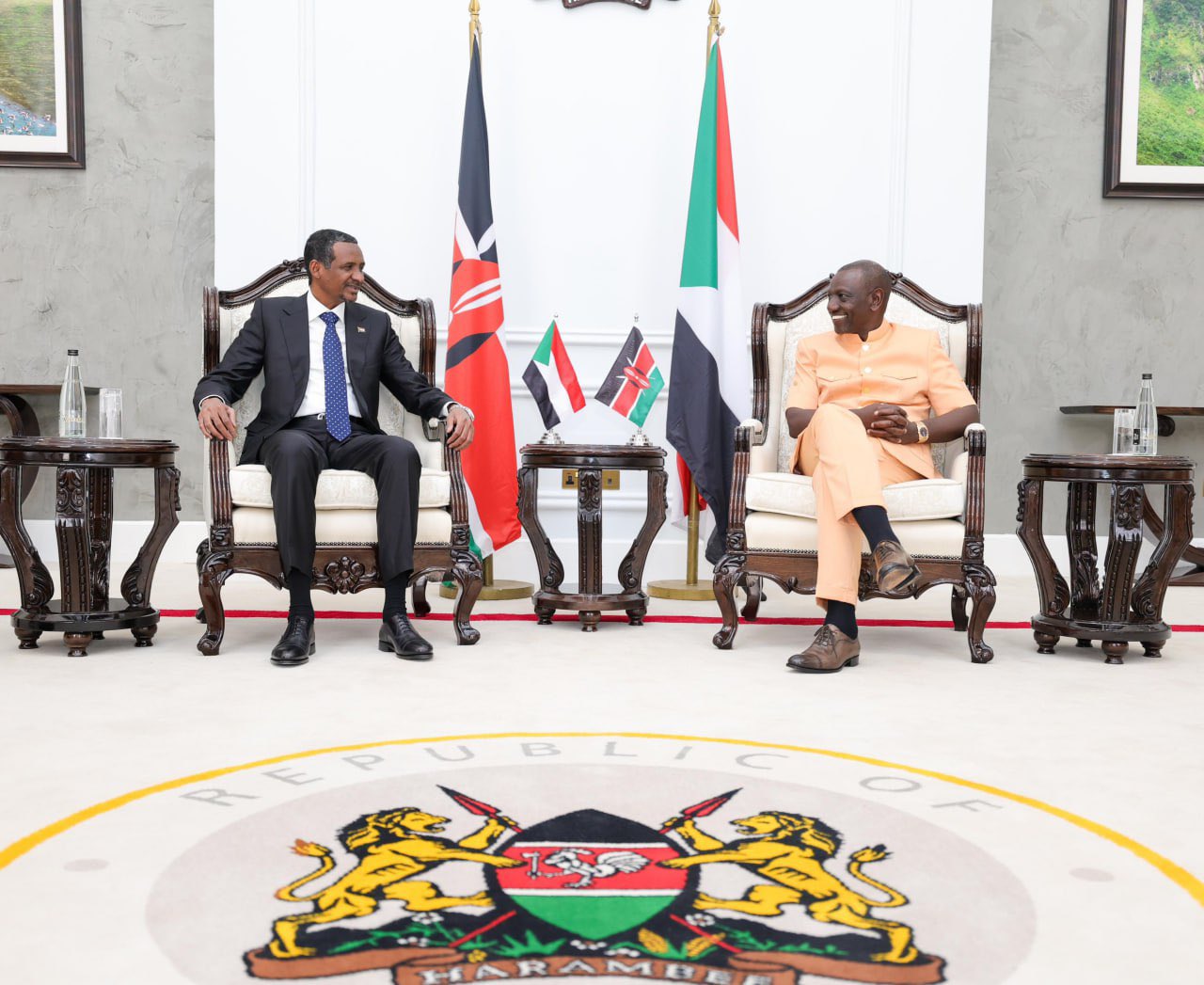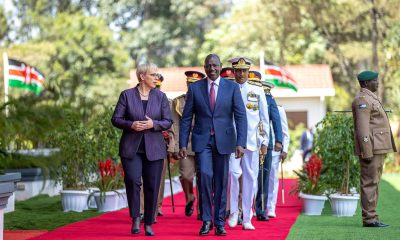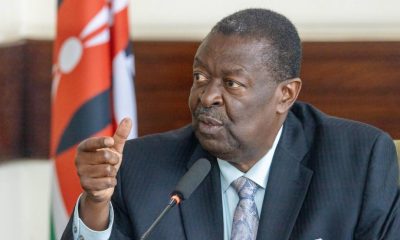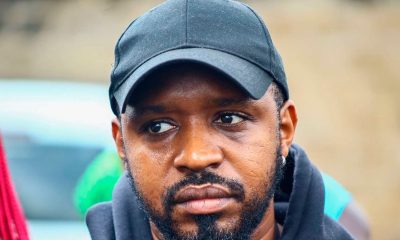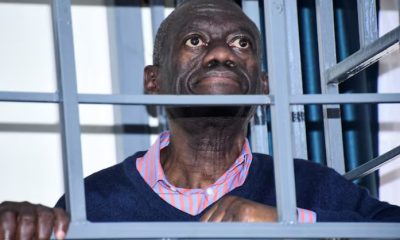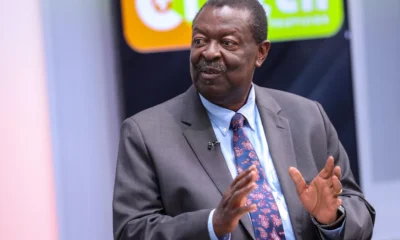Politics
No Parallel Government Formed by RSF in Kenya—Mudavadi Clarifies
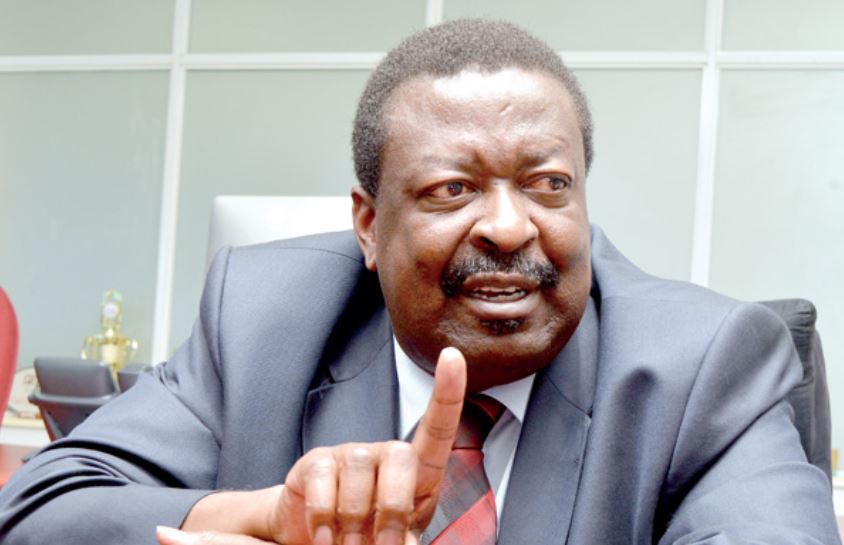
Kenya is not hosting a parallel government. That’s the strong message Prime Cabinet Secretary Musalia Mudavadi delivered on April 8, addressing swirling rumors about Sudan’s Rapid Support Forces (RSF).
Speaking at the Quarterly Diplomatic Briefing in Nairobi, Mudavadi firmly denied claims that the RSF formed a shadow administration on Kenyan soil.
The controversy arose after the RSF signed a charter at KICC. However, Mudavadi insisted that Kenya supports peace, not rebellion, and that the RSF government chatter is a dangerous distortion of facts.
Kenya Rejects Claims of Hosting RSF Parallel Gov’t
Prime Cabinet Secretary Musalia Mudavadi on Tuesday shut down reports that Sudan’s Rapid Support Forces (RSF) formed a parallel government in Nairobi.
Speaking at the Quarterly Diplomatic Briefing, Mudavadi clarified that while the RSF signed a charter at the Kenyatta International Convention Centre (KICC), it was not related to creating a government in exile.
“Let me be clear—no Sudanese government was formed or declared in Nairobi,” he said. “That conference was not about establishing a regime on Kenyan soil.”
Mudavadi called out the misinformation circulating around the event, especially concerning the term self-determination. He emphasized that this term should not be twisted to suggest Kenya is supporting secession or rebellion.
“Self-determination means people have the right to shape their political future, but Kenya did not—and will not—facilitate the creation of a foreign government within our borders,” he said.
The RSF charter, signed on February 22, grants the group administrative control over rebel-held areas in Sudan.
It also pushes for a secular, democratic Sudan with a unified national army. Despite its implications, the Kenyan government says its role was purely about fostering dialogue. Mudavadi reiterated that Kenya’s policy is rooted in mediation and peace.
“We support a unified Sudan,” he said. “Kenya has always welcomed peace talks, but forming governments in exile? That’s not who we are.”
He stressed that peace efforts must come from within Sudan and be decided by its people, not outsiders.
Gachagua’s Explosive Claims Add Fuel to the Fire
Outspoken former Deputy President Rigathi Gachagua added to the controversy with shocking claims aired during a TV interview on Monday night.
He accused President William Ruto of partnering with RSF leader Mohamed Hamdan Dagalo, also known as Hemedti, in a 2023 gold trade deal.
Gachagua even alleged that Ruto commands the RSF behind the scenes. While these claims remain unproven, they’ve intensified scrutiny of Kenya’s relationship with the RSF.
Even as questions swirl, international observers confirmed that RSF leaders Al-Hadi Idris and Ibrahim Al-Mirghani signed the charter.
It was witnessed by Abdelaziz al-Hilu, a major rebel figure with military control in South Kordofan. Al-Hilu has long pushed for a secular Sudan.
The charter calls for a non-centralized government and recognizes the continued existence of armed groups.
It also blames Sudan’s army-aligned leadership in Port Sudan for prolonging the war and failing to unite the country.
But despite the RSF’s push for reform, the backlash against Kenya’s involvement was swift. Sudan and other nations condemned the hosting of RSF leaders, raising concerns about Kenya’s neutrality.
Mudavadi’s firm stance appears to be a bid to restore Kenya’s image as a neutral peace broker. As regional instability deepens, the last thing Nairobi wants is to be seen as the launchpad for a rebel regime.
Kenya Insights allows guest blogging, if you want to be published on Kenya’s most authoritative and accurate blog, have an expose, news TIPS, story angles, human interest stories, drop us an email on [email protected] or via Telegram
-

 Lifestyle1 day ago
Lifestyle1 day agoThe General’s Fall: From Barracks To Bankruptcy As Illness Ravages Karangi’s Memory And Empire
-

 Americas1 week ago
Americas1 week agoEpstein Files: Bill Clinton and George Bush Accused Of Raping A Boy In A Yacht Of ‘Ritualistic Sacrifice’
-

 Business1 week ago
Business1 week agoCooking Fuel Firm Koko Collapses After Govt Blocks Sh23bn Carbon Deal
-

 Business1 week ago
Business1 week agoABSA BANK IN CRISIS: How Internal Rot and Client Betrayals Have Exposed Kenya’s Banking Giant
-

 Business4 days ago
Business4 days agoKRA Can Now Tax Unexplained Bank Deposits
-

 Investigations3 days ago
Investigations3 days agoEpstein Files: Sultan bin Sulayem Bragged on His Closeness to President Uhuru Then His Firm DP World Controversially Won Port Construction in Kenya, Tanzania
-

 News5 days ago
News5 days agoAUDIT EXPOSES INEQUALITY IN STAREHE SCHOOLS: PARENTS BLED DRY AS FEES HIT Sh300,000 AGAINST Sh67,244 CAP
-
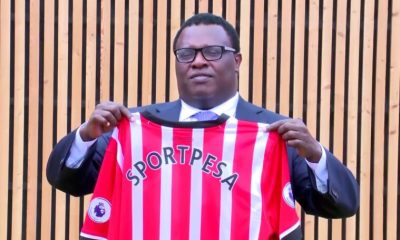
 Investigations2 weeks ago
Investigations2 weeks agoPaul Ndung’u Sues SportPesa for Sh348 Million in UK Court, Accuses Safaricom Boss of Sh2.3 Billion Conspiracy

